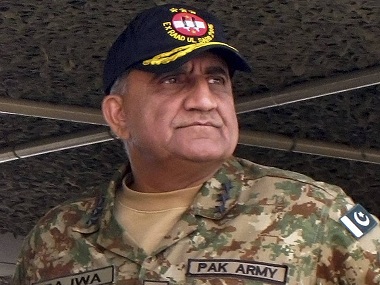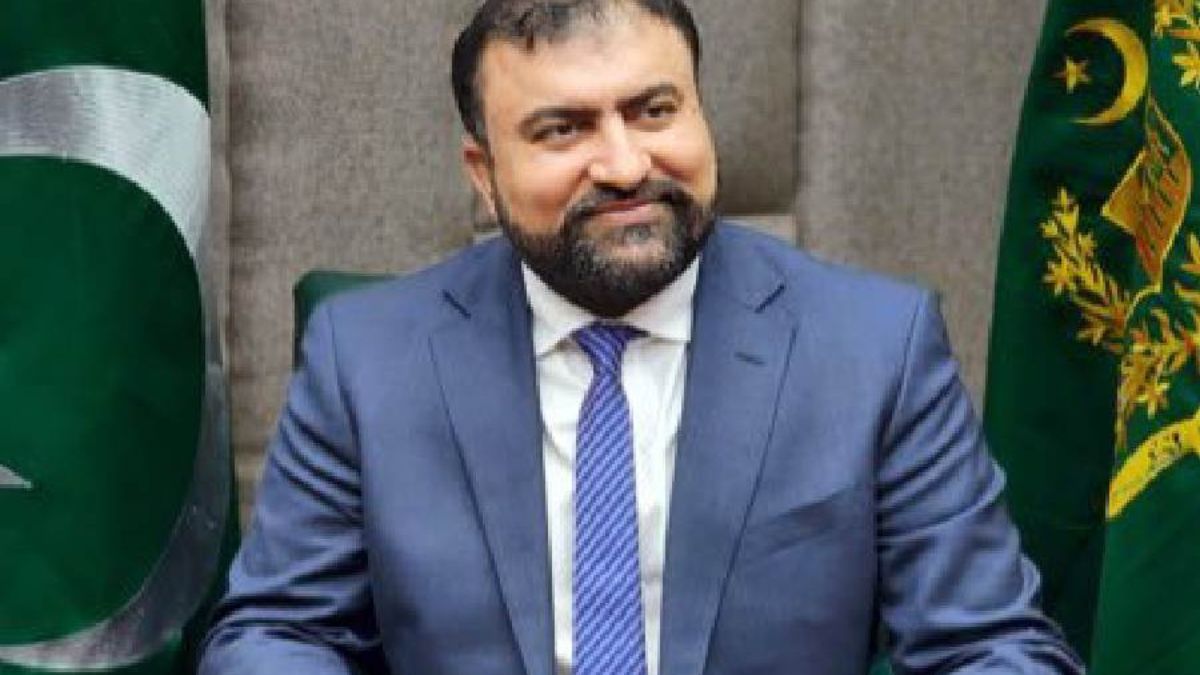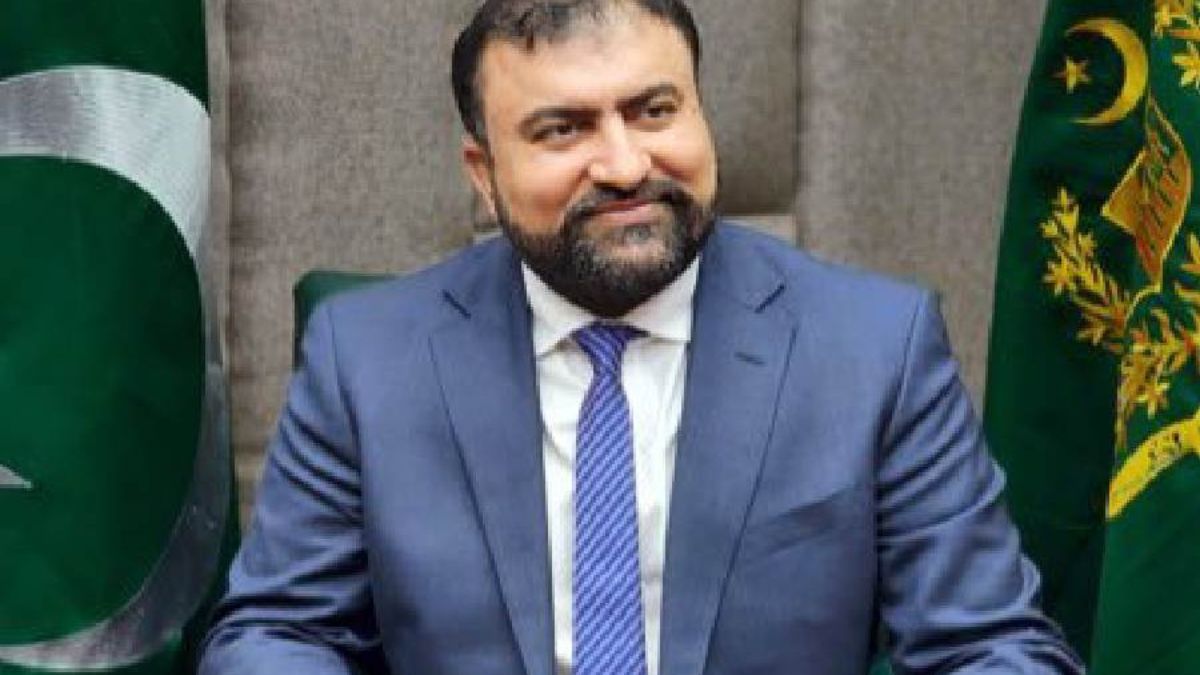The dastardly terror-attack on the Nagrota army camp in Jammu and Kashmir took place on the same day that Pakistan got a new Chief of Army Staff in General Qamar Javed Bajwa. No wonder then that India’s former home secretary and now member of Parliament RK Singh said: “We need to take note of the fact that this is the (Pakistan) new army chief sending a message. His policy will be the same as followed by the predecessor.”
Whether Tuesday morning’s attack was Bajwa’s “opening stroke” or the “parting shot” of his predecessor in General Raheel Sharif is not exactly clear. As the attack, masterminded by the Pakistani Army and implemented by its ’non-state’ agents, took place when Sharif was still in charge – he handed over the command to Bajwa on Tuesday afternoon.
Worse still, in his farewell speech, Sharif had virtually threatened India: “I want to warn India that considering Pakistan’s policy of patience and restraint as its weakness will be dangerous for India." In contrast, in his interactions with the press soon after assuming office, Bajwa said: “Everything will be all right on the Line of Control (LoC) soon.”
What did the new army chief mean when he said “all right”? This question assumes significance in context of the prevailing situation at the LoC, that is marked by high tensions between India and Pakistan, manifested in repeated outbreaks of cross-border firing, terrorists attacks in Uri and now Nagrota, unrest in Kashmir and India’s surgical strike in Pakistan-occupied Kashmir (PoK).
Does this mean that peace will be restored? Or does it point to an escalation of the war-like situation that Sharif believes will be such that “India would not be able to forget it for generations to come and will be teaching its children about Pakistan’s surgical strike.”
It may be noted here that Sharif was quite hawkish towards India, the common perception being that his hostility stemmed from the 1971 war that Pakistan lost, in which two of his family members had died. On the other hand, Bajwa has a reputation of being a pragmatist. Though he has a rich experience of serving as Commander FCNA (Force Command Northern Areas) of Gilgit-Baltistan and as General Officer Commanding of 10 Corps (the Rawalpindi-based Pakistani Corps responsible for operations along the LoC in Jammu and Kashmir), his tenure was a period of relative quiet following the 2003 ceasefire accord between India and Pakistan.
As it is, Bajwa was the proverbial dark horse for the post of army chief. And if Prime Minister Nawaz Sharif chose him for the most powerful office in Pakistan, superseding two officers in the process, it was mainly because he prefers to keep a low profile and is not known for his hawkish views on what Pakistan’s politics and foreign policy should be.
The choice of Bajwa, therefore, is based on political considerations; though one cannot doubt his professionalism and experience. Nawaz expects his new army chief to be less-interfering in areas that any elected prime minister would consider as his exclusive domain. He does not want any interference while determining and implementing the core policies for governing Pakistan and promoting its cause and image in rest of the world. In other words, Nawaz hopes that Bajwa will go along with him in restoring the delicate civil-military relationship in Pakistan.
It may be noted here that it was Nawaz who, as prime minister back in 1999, had chosen General Pervez Musharraf as the army chief. And it so happened that it was Musharraf who eventually toppled Nawaz in a military coup. It was Nawaz again in 2013 who chose General Sharif (no relative of his) as the army chief.
It is true that Sharif did not turn out to be a ‘Musharraf’ and peacefully handed over the command, but the fact remains that a hyperactive Sharif did gravely undermine the prime minister’s position. He literally took over the responsibility of internal law and order by establishing numerous military courts to deal with those indulging in acts of terror; brought television and other forums of media under control; and dealt directly with policies concerning India and Afghanistan. In effect, Pakistan was ruled by Sharif from Rawalpindi, and not by Nawaz from Islamabad.
It is also worth-noting that Sharif was a ‘popular’ army chief, in the sense that Pakistani people at large supported his policies in fighting terrorism emanating from the so-called Pakistani Taliban. Unlike politicians like Nawaz and Imran Khan, who talked of “good Taliban, bad Taliban” and favoured “negotiations” with the religious extremists and coexistence with their hatred against non-Sunnis, Sharif decided to take them on.
After all, Pakistan has also been a victim of religious fanaticism, having lost as many as 50,000 people since 2001, including 16,000 military personnel, at the hands of Pakistani extremists. Sharif wanted Pakistan to come out of this partially “self-created bloodbath of terrorism.”
In a way, Sharif was pursuing, though more vigorously, the thesis of his predecessor General Ashfaq Parvez Kayani that, “the war against extremism and terrorism is not only the army’s war, but that of the whole nation. We as a nation must stand united against this threat. The army’s success is dependent on the will and support of the people.”
In fact, it was under Kayani that the Pakistani Army had come out with a new doctrine that, for the first time, talked of Pakistan facing a “multifaceted threat” and not just the threat “from India”. Sharif took this doctrine further by forcing the civilian rulers to agree upon a “National Action Plan” to defeat terrorism, under which 20,000 registered and 40,000 unregistered madrasas, or religious schools (where three million children are enrolled), were regulated to impart education on ‘moderate Islam’.
In his fight against fundamentalist extremists in Pakistan’s frontier areas (North Waziristan and Khyber tribal regions bordering Afghanistan), Sharif also started curtailing the activities of extremist groups (including the Al Qaeda) coming from Iran, Uzbekistan, Tajikistan, Afghanistan, China, Russia, Chechnya, and many Arab states. These groups, according to experts, have turned between one-quarter to one-third of Pakistan into “no-go” areas.
The only dichotomy in Sharif’s approach was that he did not pursue this with regard to groups like Lashkar-e-Taiba (LeT), Jaish-e-Mohammed (JeM) and other Punjab-based Sunni extremist groups because they were targeting India, including Kashmir.
In fact, he allowed the ISI to train and finance them and used these terrorists groups as a potent weapons against India. Here, he differed with Nawaz who wanted to respond constructively to the peace gestures coming from the Narendra Modi government. But ‘hate India’ is such a unifying slogan in Pakistan that Sharif vetoing Nawaz’s India-policy did not dent the former’s popularity.
The other reason for Sharif’s growing popularity was the increasing incompetence and corruption of the elected government, whose politicians depended on patronage, bribes, and a backward feudal culture for their survival. Of course, this trend did not start with Nawaz, but he is now its signing symbol, particularly after the release of the so-called Panama papers that “established” money-laundering by his family in foreign banks.
In fact, the situation is such that with each passing year, Pakistani people are becoming more comfortable with the Pakistani Army running even the country’s economy. The army now runs the banks, industries, vast housing projects, and the largest transport and construction company in the country. The army’s economic muscle is already so strong that it does not allow Parliament to make a full disclosure of its annual military budget.
As Ayesha Siddiqa wrote in her book, Military Inc: Inside Pakistan’s Military Economy: “‘Milbus’ (military capital used for the personal benefit of military fraternity) operates in three areas: Agriculture, manufacturing and services and at three levels: Through direct involvement of the military, obtaining unfair economic advantage for its subsidiaries and obtaining direct favours for individual members of the military fraternity.”
Despite constraints to evaluation posed by the lack of transparency, which the author laments, she puts through her main argument that the commercial ventures of the military’s subsidiaries use the influence of the military to obtain business contracts and inputs, financial as well industrial, at subsidised rates. This puts these ventures ahead of their competitors in the private sector. Obviously, this profitable connection with the economy is the reason why the Pakistani Army is unwilling to yield to civilian power.
All told, Pakistan has already become “an army with a country” rather than “a country with an army”. It is well established that there are three lakshman rekhas (limiting lines) that the army has drawn for the civilian prime ministers and presidents: One, they would not interfere in any manner in the organisational and administrative work of the armed forces. Two, they would abide by the advice of the army chief on matters of foreign and defence policies. Three, they would not interfere with the army-controlled nuclear weaponisation and missile programmes.
Will Bajwa forgo this legacy and make himself a pliant army chief of the prime minister? It is highly unlikely. There is a remote possibility of any significant shift in the existing civil-military imbalance in Pakistan. And this means that there will be no radical change in the heightened tensions with India. RK Singh is right in saying that Bajwa’s policy will be the “same as followed by his predecessor.”


)




)
)
)
)
)
)
)
)